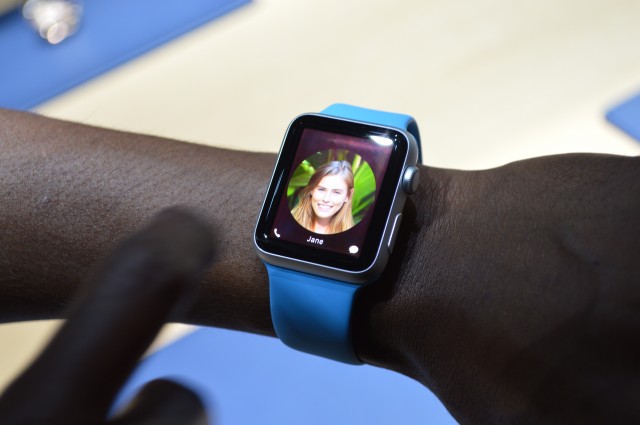
Wearable technology company Valencell has sued both Apple and Fitbit, saying the two companies' devices infringe on various Valencell patents.
In the Apple complaint (PDF), Valencell says that the Apple Watch infringes its patents, and the company also adds some unusual breach of contract claims. Valencell lawyers say that Apple employees downloaded white papers from the Valencell website. The white papers are publicly available, but they require a user to enter contact information before receiving the papers. Valencell says that "Apple breached this contract by not providing the organization, name, and email address of the recipient."
Valencell was able to capture several IP addresses from visitors who got the white papers and link them to Apple. The breach of contract claims say that white papers were downloaded to Apple IP addresses in March 2013, March 2014, and April of 2015. The paper allegedly downloaded in 2013 was called “PerformTek Precision Biometrics: Engaging the Burgeoning Mobile Health and Fitness Market."
The lawsuit also says Valencell demonstrated a prototype PerformTek watch to about 15 Apple employees in 2013. "The back of the watch included a heart-rate monitor that was substantially similar to the Apple watch," says the complaint. "One or more of the Apple employees in attendance was involved in the design and/or implementation of the Apple Watch."
Valencell's complaints accuse Apple and Fitbit of infringing the same four related patents, numbered 8,923,941, 8,886,269, 8,929,965, and 8,989,830. The '941 patent describes “methods and apparatus for generating data output containing physiological and motion-related information,” while two others describe "wearable light-guiding bands for physiological monitoring.”In the Fitbit lawsuit (PDF), Valencell lawyers describe how at the 2014 CES show, "the booths for Valencell and Fitbit were in close proximity." Fitbit's Chief Revenue Officer Woody Scal "expressed great interest in the application of Valencell's patented technology, including its wrist sensor modules," write Valencell lawyers. "After CES, Mr. Scal did not respond to Valencell's follow-up requests."
Valencell again contacted Fitbit "about a partnership opportunity" in February 2015 but received no response. It isn't clear how the fact that Fitbit was apparently ignoring Valencell bolsters the company's infringement case.
Unlike the Apple complaint, the case against Fitbit includes just the patent infringement claims; it says the Fitbit Surge and Charge HR both infringe the four patents listed above.
"Rather than manufacture its own wearables, Valencell has repeatedly chosen to partner with existing consumer electronics companies and manufacturers while continuing to focus our R&D on creating the future in biometric wearables,” said Valencell President Steven LeBoeuf in the company's statement on the lawsuits. “As more and more wearable products powered by Valencell’s award-winning PerformTek® sensor technology are now available in the marketplace, and the market has begun to value the importance of highly accurate biometric wearables, we’ve seen some companies choose to use our patented inventions without pursuing a patent license."
Apple and Fitbit aren't accused of actually using Valencell's touted PerformTek. They're being sued for selling devices that use light and biometric sensors in a way that's similar to what's described in Valencell's four patents, which is all that is required under patent law. Apple and Fitbit may have just chosen different partners to work with or kept certain aspects of their research and development in-house, but that won't matter in a patent case where patent owners are not required to prove copying, and independent invention is not a defense.
"Fitbit has independently developed and delivered innovative product offerings to empower its customers to lead healthier, more active lives," a Fitbit spokesperson told Ars. "Since its inception, Fitbit has more than 200 issued patents and patent applications in this area. Fitbit plans to vigorously defend itself against these allegations."
Ars also reached out to Apple for comment, and we'll update this post if we get a response.
reader comments
99